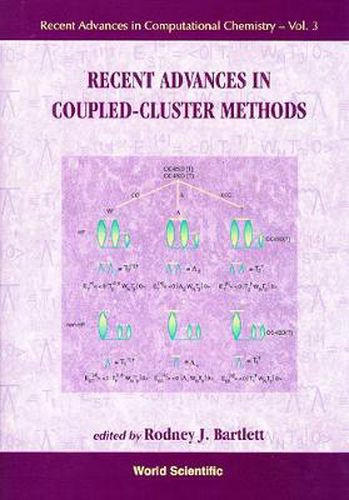Readings Newsletter
Become a Readings Member to make your shopping experience even easier.
Sign in or sign up for free!
You’re not far away from qualifying for FREE standard shipping within Australia
You’ve qualified for FREE standard shipping within Australia
The cart is loading…






Coupled-cluster (CC) theory has emerged as the most accurate, widely applicable approach for the correlation problem in molecules. Furthermore, the correct scaling of the energy and wavefunction with size (extensivity) recommends it for studies of polymers and crystals as well as molecules. CC methods have also paid dividends for nuclei, and for certain strongly correlated systems of interest in field theory. In order for CC methods to have achieved this distinction, it has been necessary to formulate new, theoretical approaches for the treatment of a variety of essential quantities. These include properties and, particularly, analytical first derivatives (gradients) that readily provide the forces on the atoms in a molecule to facilitate searching potential energy surfaces for structures and transition states; second derivatives (Hessians) which indicate the type of extremum point and provide vibrational frequencies and intensities; excited, ionized and electron attached states including their properties; multi-configurational reference functions to add important nondynamic correlation; and relativistic effects. This book addresses recent work in each of the above topics in ten chapters written by leading experts in molecular CC theory. Each chapter presents new results and formulations that offer another step toward providing the next generation of powerful CC solutions.
$9.00 standard shipping within Australia
FREE standard shipping within Australia for orders over $100.00
Express & International shipping calculated at checkout
Stock availability can be subject to change without notice. We recommend calling the shop or contacting our online team to check availability of low stock items. Please see our Shopping Online page for more details.
Coupled-cluster (CC) theory has emerged as the most accurate, widely applicable approach for the correlation problem in molecules. Furthermore, the correct scaling of the energy and wavefunction with size (extensivity) recommends it for studies of polymers and crystals as well as molecules. CC methods have also paid dividends for nuclei, and for certain strongly correlated systems of interest in field theory. In order for CC methods to have achieved this distinction, it has been necessary to formulate new, theoretical approaches for the treatment of a variety of essential quantities. These include properties and, particularly, analytical first derivatives (gradients) that readily provide the forces on the atoms in a molecule to facilitate searching potential energy surfaces for structures and transition states; second derivatives (Hessians) which indicate the type of extremum point and provide vibrational frequencies and intensities; excited, ionized and electron attached states including their properties; multi-configurational reference functions to add important nondynamic correlation; and relativistic effects. This book addresses recent work in each of the above topics in ten chapters written by leading experts in molecular CC theory. Each chapter presents new results and formulations that offer another step toward providing the next generation of powerful CC solutions.